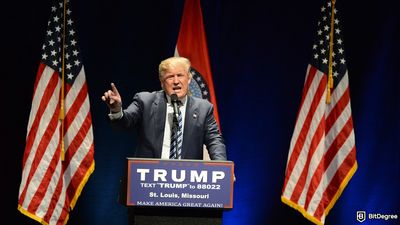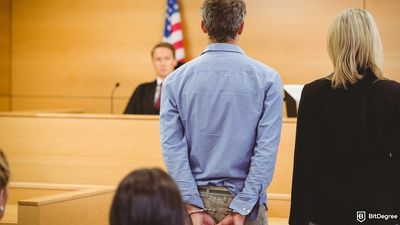According to Garlinghouse, "the law of the land right now is that XRP is not a security."
Ripple Labs' Chief Executive Officer, Brad Garlinghouse, predicts a lengthy road for the United States Securities and Exchange Commission (SEC) as they contemplate appealing the recent court ruling.
The US District Court passed a verdict in the ongoing Ripple SEC lawsuit on July 13th. The ruling concluded that Ripple's XRP token does not qualify as a security when sold on consumer digital asset platforms. However, XRP does constitute a security when sold to institutional investors.

Did you know?
Want to get smarter & wealthier with crypto?
Subscribe - We publish new crypto explainer videos every week!
What is IOTA's Tangle? IOTA & mIOTA Animated Explainer


In a conversation with Bloomberg on July 15th, Garlinghouse downplayed the significance of the institutional sales component, labeling it as the lawsuit's "smallest piece." Garlinghouse claimed that any appeal from the SEC regarding the retail sales ruling would only reinforce Judge Torres' decision.
Garlinghouse laid out a timeline for a possible SEC appeal, stating that the current legal standing is that XRP is not a security. However, any opportunity for the SEC to contest this decision could take years, and this lengthiness leads to his optimistic outlook.
As a matter of law, the law of the land right now is that XRP is not a security. Until there is an opportunity for the SEC to file an appeal, which would take years, frankly, we are very optimistic.
Garlinghouse took this opportunity to point out the unprecedented nature of this case, highlighting that it was the first time the SEC lost a cryptocurrency-related lawsuit. He criticized the SEC for its perceived aggressive stance, labeling it a "bully" and suggesting it pursued actions against crypto industry players who lacked resources to defend themselves adequately.
The CEO further reflected on the initial reactions to the lawsuit filing, noting that many US crypto exchanges adopted a wait-and-see approach due to uncertainty. The resulting apprehension led prominent platforms like Coinbase and Kraken to delist XRP entirely.
Garlinghouse also voiced his belief that the SEC was complicit in fomenting market confusion.
They knew there was confusion, and they actually did things that they knew would increase confusion.
Garlinghouse concluded with a critique of the SEC's handling of the case, accusing them of favoring power plays and political machinations over rational policy-making. He complained that this approach had created a challenging environment for American entrepreneurs and investors in the crypto and blockchain sectors.
The SEC's potential appeal against Ripple Labs could serve as a pivotal moment in the US crypto market, potentially setting the course for how digital assets will be legally categorized in the future.





















